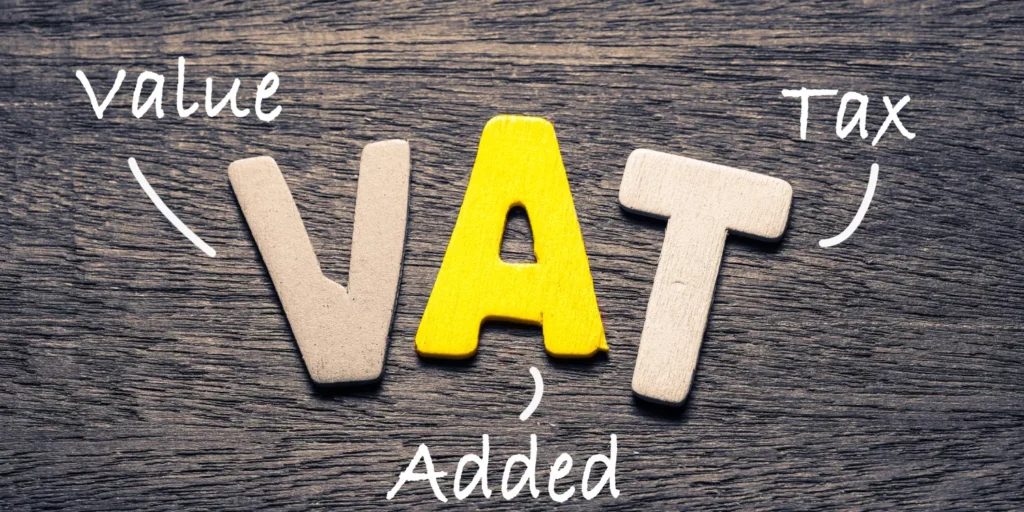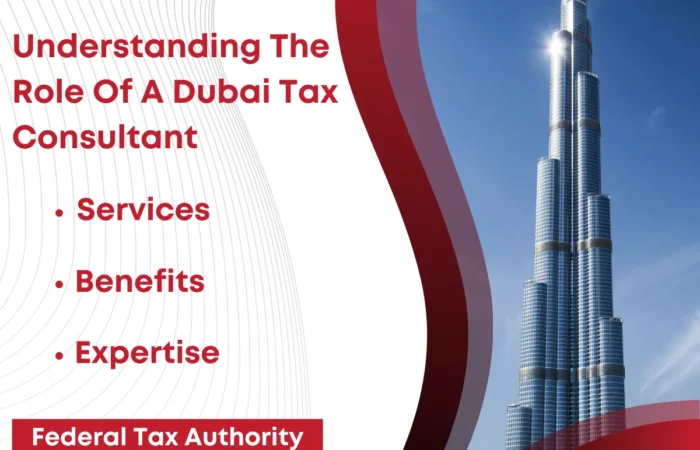Are you dreaming of keeping more money in your pocket and less to the taxman? Here’s a fact: Besides being a top-tourist attraction, Dubai is also know for being a tax haven with no federal tax, income tax or capital gains tax, i.e., most things in the Gulf of Venice are exempt from taxes. This article will dive into how Dubai’s tax-free environment can boost your financial freedom and wealth growth as a resident.
Read on to know more about tax benefits of living in Dubai!
Tax Benefits of Living in Dubai: A Quick Overview of Living in Dubai

Seeking ways to maximize your earnings and savings can be daunting, especially when taxes eat into your income. However, it can be less daunting if you jump in on the Dubai tax-free bandwagon, which comprises a world of tax benefits. Dubai stands out with a unique tax regime that offers numerous benefits for residents. Hence, anyone thinking of relocating to Dubai to break free from tax obligations is advised to go forth with their decision.
This article will guide you through the perks of living in this dynamic city, showing you how it can impact your finances positively. Discover a world of tax savings on rental income, personal income, etc.!
The UAE Tax System
The UAE Tax System boasts a unique structure that distinguishes it from many other nations, with several forms of taxes, including rental tax, income tax, council tax, municipality tax, etc., either remarkably low or altogether absent, offering distinct advantages to residents and businesses alike.
This system includes the implementation of certain indirect taxes but remains especially favorable due to the lack of federal income tax on personal income.
Value-Added Tax

Value Added Tax, or VAT, is a tax that adds a little to the cost of living and things you buy. In the UAE, this tax is 5%. The tax is levied on most things, but some items don’t get taxed at all or are taxed less.
Businesses that sell stuff or have imports more than AED 375,000* each year are not exempt from VAT. However, if you’re visiting from another country or your business isn’t from the UAE, you can get back the money spent on VAT for things bought during your stay.
Since major savings can be made, you are advised to seek help from experts for VAT accounting, filing and other similar services related to VAT.
Corporate Tax
In Dubai, a 9% corporate tax is levied on companies if they earn more than AED 375,000* yearly. This corporate tax rate rule came into effect in June 2023 and is the same for all businesses in every part of the UAE. On the other hand, small companies that make less money, i.e., lesser than AED 375,000* annually, are exempted from paying corporate tax.
This system of taxation affects branches of foreign companies too. The foreign company branches can get counted as permanent places of business, i.e., they could need to pay UAE taxes as per the taxation system, just like all other local companies. The idea behind implementing this was to have fair regulations and laws for everyone doing business in Dubai as well as the UAE. The rule came into effect on June 1, 2023 and will be applicable on all fiscal years henceforth.
Excise Tax
Excise tax is a special kind of tax that Dubai puts on goods and services that can negatively impact people’s health. Some products on which excise tax is levied are tobacco items, electronic smoking tools, and drinks that have a lot of sugar or energy boosters.
When someone buys these items, they pay a certain amount of excise tax. The rate depends on the item in question. The idea behind this tax is to make folks think twice about paying for items or services that can negatively impact their health.
Dubai government benefits significantly from this tax. If you’re visiting Dubai or even if you are running a business from another country, you might have to pay excise taxes. However, the silver lining is that tourists and foreign companies, in most cases, can get back the excise taxes they paid while staying in Dubai.
Tax Benefits for Expats Living in Dubai
Discover how Dubai’s tax landscape can significantly enhance expats’ financial well-being, offering them more freedom to enjoy their income and explore lucrative ventures—read on to unpack these fiscal advantages.

Higher Disposable Income
Residing in Dubai means you get to keep more of your money, primarily because there is not much payment of tax. Since there is no personal income tax in Dubai, your paycheck is all yours. This extra cash can help with daily life, savings, or fun activities.
With this higher disposable income, people often choose to invest. They might buy property or explore business ideas. More money gives them room to grow and dream big. Next up, let’s talk about investment opportunities in Dubai!
Investment Opportunities
Having more money to spend opens doors to put it into different projects. Dubai is full of chances for smart investing. People can start a business or join in on big ventures because the city has everything they need and rules that help businesses grow. Big companies from all over the world have made Dubai their home, which shows how good a place it is for making money grow.
People who have extra cash also look at buying sectors, places, or spaces in free zones. These areas let folks run their shops without paying some kinds of taxes. This free-of-tax rule saves money and helps make even more profit.
The city’s tax-free in terms of property or wealth, which means that besides earning your salary in Dubai, you get to keep more of what you earn from your investments too.
Absence of Property and Wealth Tax
In Dubai, you don’t have to pay taxes on your house or how much money you own, which is why earning your income in Dubai is a smart way to spend more and losing less to the government. This tax-free policy is great for people who live there because they can save more money or spend it on other things they like, such as enhancing their living standards, or buying things.
They can also buy homes without worrying about extra costs added due to the tax levied every year. Moreover, people thinking about renting a property in Dubai can also benefit from it. This helps make Dubai a nice hub for foreigners to stay and invest in property, i.e., buy an investment property in Dubai.
People from other places find this tax free rule very helpful, especially those who look at saving income tax as a way to add to their wealth. They can keep all the money when they sell their houses or get gifts without getting heavily taxed and giving any of it to the government. This makes more people want to move to Dubai and enjoy its benefits.
Becoming a Tax Resident in Dubai
Discover the pathway to enjoying Dubai’s favorable tax-free status and climate by understanding what it takes to establish yourself as a tax resident. Explore the criteria and implications of aligning your fiscal domicile with this dynamic emirate.
Qualifications and Requirements

Dubai offers people a chance to become tax residents. Meeting certain conditions is essential for acquiring the status of a tax resident in the Emirate. Here is a look at them:
- Reside in the UAE for at least 183 days within one calendar year. This shows that you spend a lot of time living there.
- Ensure that your period of stay is not broken into fragments, i.e., make sure that you stay continuously and not leave the country frequently and keep coming back.
- Hold a valid residence visa issued by the UAE government. This proves you’re allowed to live in Dubai.
- Declare your overall earnings to UAE tax authorities. It is crucial that they have a record of your finances.
- If you qualify as a tax resident, make sure to hand in your tax returns.
- Understand that each emirate, like Dubai or Abu Dhabi, might have different tax rules because there’s no single federal tax law.
Understanding Tax Treaties Between the UAE and Other Countries

The UAE has deals with many countries to avoid double taxation. These agreements help you not pay tax twice on the same money. For example, if you live in Dubai but have a business making money in another country, these treaties can lower your tax bill there because of what you already pay in the UAE.
They make sure that profits from abroad are taxed fairly. This policy to attract skilled expats works wonders.
Each deal between the UAE and other places is different. It’s important to check how a treaty works for your situation. Some might cut down taxes on things like dividends or interests from savings.
Others could help companies that work across borders by not taxing their earnings twice. This compels global companies to diversify their portfolios by establishing their presence in the UAE. If you are in need of treaty-related help, always talk to an expert about these treaties so you don’t pay more tax than needed or break any rules.
Conclusion
In Dubai, people enjoy big tax savings since there is zero income tax, rental tax, etc. Since there is no taxation on your income, you keep more of the money you make and can invest or spend it as per your liking. Living as a UAE citizen means fewer tax worries and more chances to grow your wealth.
The low tax policies and the overall tax regime of Dubai make it the perfect place for those looking to boost their bank balance while enjoying a high-quality life. Tax policies like low or no tax on sourced income, corporate income, etc., also attract skilled expats and global companies, which is another factor that adds to Dubai’s appeal.
Besides corporate professionals, the tax-free living attracts people from different walks of life. In addition to all the aforementioned tax perks, Dubai also offers many other benefits to residents. So, consider shifting and making Dubai your home if you want to enjoy these advantages too. Relocate soon to enjoy a living which is tax-free in Dubai!
FAQs
1. Does Dubai levy any sales taxes like VAT?
Dubai has a value-added tax (VAT) but it’s at a flat tax rate that’s usually lower than many other countries’ sales taxes.
2. If I make money from properties or businesses elsewhere, will Dubai tax it?
No, there is no income taxation on earnings made outside of the United Arab Emirates; this can be good news especially for digital nomads and entrepreneurs.
3. Will I face double taxation if my home country has a treaty with the UAE?
The United Arab Emirates has double-taxation agreements with many countries that let you avoid being taxed twice on the same income.
4. As an expat in Dubai, what should I know about real estate transactions?
When purchasing property in Dubai, i.e., in places like Sharjah, within the emirate of Abu Dhabi or even Nasdaq Dubai-listed companies’ shares as investments – remember there may be fees such as stamp duty or transfer tax which are generally low compared to other global cities.
Disclaimer:
This blog is intended for informational purposes only. The content is provided “as is” and we make no representations or warranties of any kind regarding its accuracy, completeness, or suitability. Any reliance on the information is at your own risk. We are not liable for any losses or damages arising from the use of this blog.
* – Fees and Costs Mentioned are for Reference Only.


